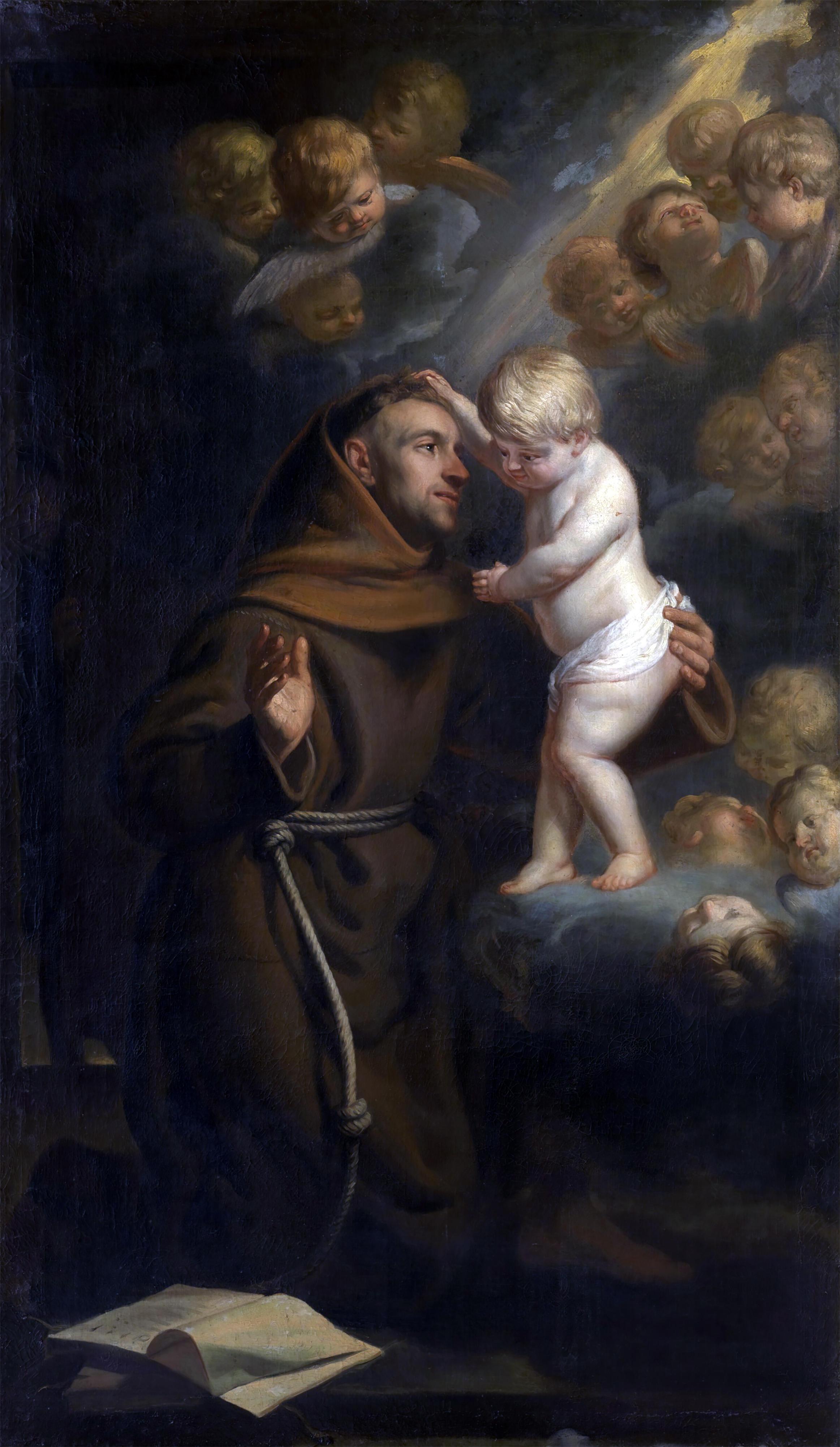It surely could not have been enough. Five loaves of bread and two fish could feed ten people but not five thousand. I wonder if the Twelve ever thought Jesus was crazy or if they saw enough signs to know that he really was God. It’s on my list of questions for when I arrive in Heaven.
My study Bible says this passage is a foreshadowing of the sacramental miracle of the Eucharist. I think it’s also an example of trusting that what we are given by Jesus is enough. When my husband lost his job, I prayed for a very specific salary for his next job. Our parish and seminary were planning capital campaigns and I wanted to donate. Thanks be to God, my husband found employment but the salary was not what I’d hoped. One of those campaigns began and we were asked to donate an amount we thought would be out of reach. We prayed and talked about it and decided to give it a go. It turns out that what I didn’t think would be enough is, in fact, enough. Again, I am reminded that Jesus can do big things with our humble trust.
Feeding five thousand people is a big task. I would like to know what the Apostles thought when Jesus instructed them to distribute the loaves and fish. I would like to thank them for their trust in this and in so many other matters. The example they set as flawed humans like us, is inspiring and helpful.
Slowly, as I live this life I’ve been gifted with, I am learning that Jesus’s reality is so much bigger than mine. He has the whole picture while I have just a bit of it. I can trust that what He gives is not just enough, it’s more than enough. He is so good.
Sin duda no podría haber sido suficiente. Cinco panes y dos peces podrían alimentar a diez personas, pero no a cinco mil. Me pregunto si los Doce alguna vez pensaron que Jesús estaba loco o si vieron suficientes señales para saber que realmente era Dios. Está en mi lista de preguntas para cuando llegue al cielo.
Mi Biblia de estudio dice que este pasaje es un presagio del milagro sacramental de la Eucaristía. Creo que también es un ejemplo de confiar que lo que Jesús nos da es suficiente. Cuando mi esposo perdió su trabajo, recé por un salario muy específico para su próximo trabajo. Nuestra parroquia y seminario estaban planeando campañas de recaudación de fondos y yo quería donar. Gracias a Dios, mi esposo encontró trabajo, pero el salario no era el que yo esperaba. Una de las campañas comenzó y nos pidieron que donáramos una cantidad que pensábamos que estaría fuera de nuestro alcance. Rezamos y lo hablamos y decidimos intentarlo. Resulta que lo que pensé que no sería suficiente, de hecho, es suficiente. Una vez más, me hace acordar que Jesús puede hacer cosas grandes con nuestra humilde confianza.
Alimentar a cinco mil personas es mucho trabajo. Me gustaría saber qué pensaron los apóstoles cuando Jesús les ordenó a distribuir los panes y los peces. Me gustaría agradecerles su confianza en esto y en tantos otros asuntos. El ejemplo que dan como seres humanos imperfectos como nosotros es inspirador y útil.
Poco a poco, a medida que vivo esta vida que me ha sido otorgada, estoy aprendiendo que la realidad de Jesús es mucho más grande que la mía. Él tiene el panorama completo mientras que yo tengo solo una parte. Puedo confiar en que lo que Él da no es solo lo suficiente, sino es más que suficiente. Él es tan bueno.
 Merridith Frediani loves words and is delighted by good sentences. She also loves Lake Michigan, dahlias, the first sip of hot coffee in the morning, millennials, and playing Sheepshead with her husband and three kids. She writes for Catholic Mom, Diocesan.com, and her local Catholic Herald. Her first book Draw Close to Jesus: A Woman’s Guide to Adoration is available at Our Sunday Visitor and Amazon. You can learn more at merridithfrediani.com.
Merridith Frediani loves words and is delighted by good sentences. She also loves Lake Michigan, dahlias, the first sip of hot coffee in the morning, millennials, and playing Sheepshead with her husband and three kids. She writes for Catholic Mom, Diocesan.com, and her local Catholic Herald. Her first book Draw Close to Jesus: A Woman’s Guide to Adoration is available at Our Sunday Visitor and Amazon. You can learn more at merridithfrediani.com.
Feature Image Credit: Thomas Nelson and Sons, art.diocesan.com/stock-photo/the-feeding-of-the-five-thousand-18634/
The views and opinions expressed in the Inspiration Daily blog are solely those of the original authors and contributors. These views and opinions do not necessarily represent those of Diocesan, the Diocesan staff, or other contributors to this blog.


 Hailing from Nashville, Catherine is a graduate of Christendom College with a lifelong passion for words. Her love of writing and her Catholic Faith continue to shape her as a freelance editor, copywriter, and (aspiring) novelist, where she pursues her passions for the love and greater glory of God.
Hailing from Nashville, Catherine is a graduate of Christendom College with a lifelong passion for words. Her love of writing and her Catholic Faith continue to shape her as a freelance editor, copywriter, and (aspiring) novelist, where she pursues her passions for the love and greater glory of God.
 Pamela Kavanaugh is a grateful wife, mother, and grandmother who has dedicated her professional life to Catholic education. Though she has done her very best to teach her students well in the subjects of language and religion, she knows that she has learned more than she has taught. She lives, teaches, and writes in southwest suburban Chicago.
Pamela Kavanaugh is a grateful wife, mother, and grandmother who has dedicated her professional life to Catholic education. Though she has done her very best to teach her students well in the subjects of language and religion, she knows that she has learned more than she has taught. She lives, teaches, and writes in southwest suburban Chicago.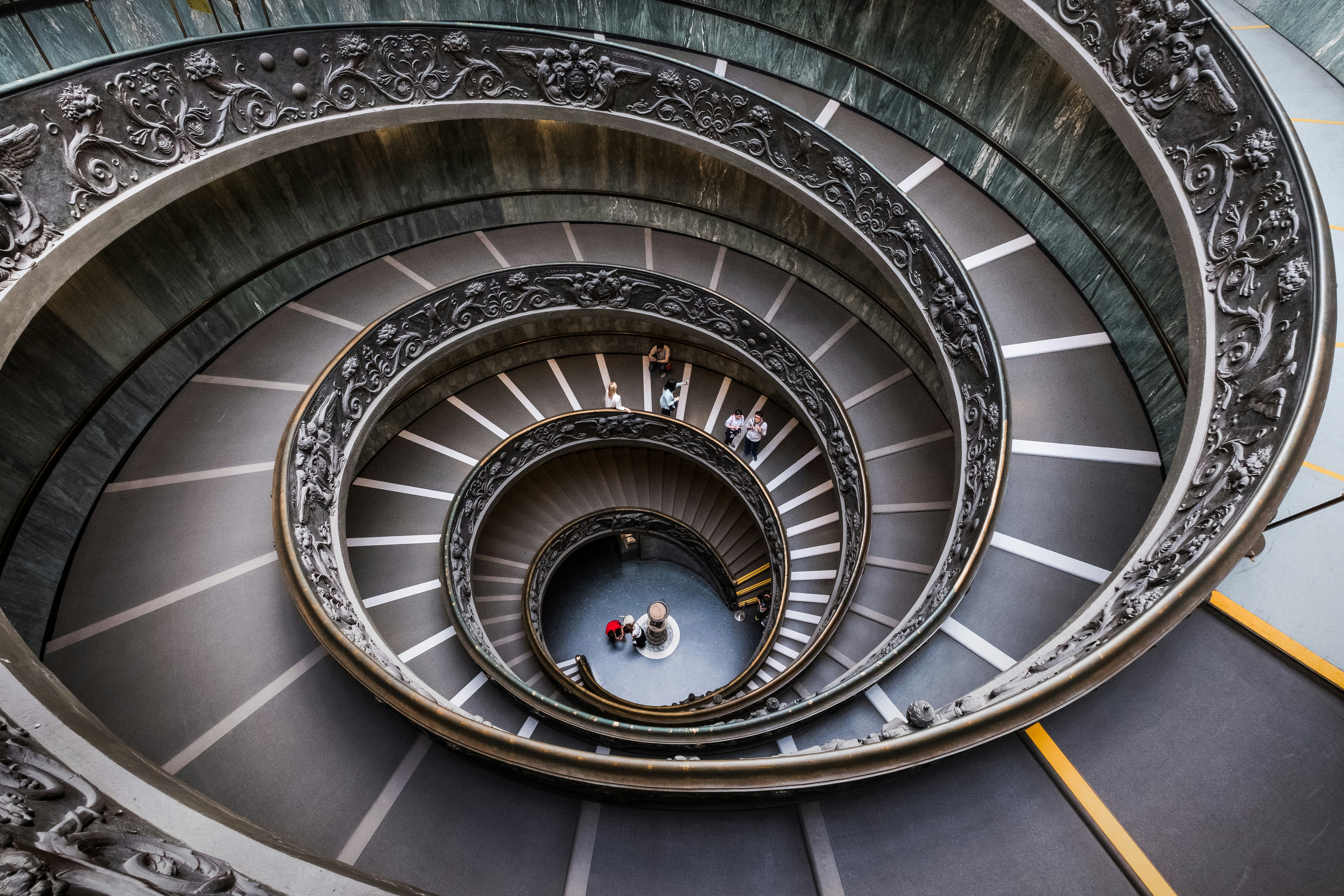
 Deanna G. Bartalini, M.Ed.; M.P.A., is a certified spiritual director, writer, speaker and content creator. The
Deanna G. Bartalini, M.Ed.; M.P.A., is a certified spiritual director, writer, speaker and content creator. The 
 Mike Karpus is a regular guy. He grew up in Michigan’s Upper Peninsula, graduated from Michigan State University and works as an editor. He is married to a Catholic school principal, raised two daughters who became Catholic school teachers at points in their careers, and now relishes his two grandchildren, including the older one who is fascinated with learning about his faith. He also has served on a Catholic school board, a pastoral council and a parish stewardship committee. He currently is a lector at Mass, a Knight of Columbus, Adult Faith Formation Committee member and a board member of the local Habitat for Humanity organization. But mostly he’s a regular guy.
Mike Karpus is a regular guy. He grew up in Michigan’s Upper Peninsula, graduated from Michigan State University and works as an editor. He is married to a Catholic school principal, raised two daughters who became Catholic school teachers at points in their careers, and now relishes his two grandchildren, including the older one who is fascinated with learning about his faith. He also has served on a Catholic school board, a pastoral council and a parish stewardship committee. He currently is a lector at Mass, a Knight of Columbus, Adult Faith Formation Committee member and a board member of the local Habitat for Humanity organization. But mostly he’s a regular guy.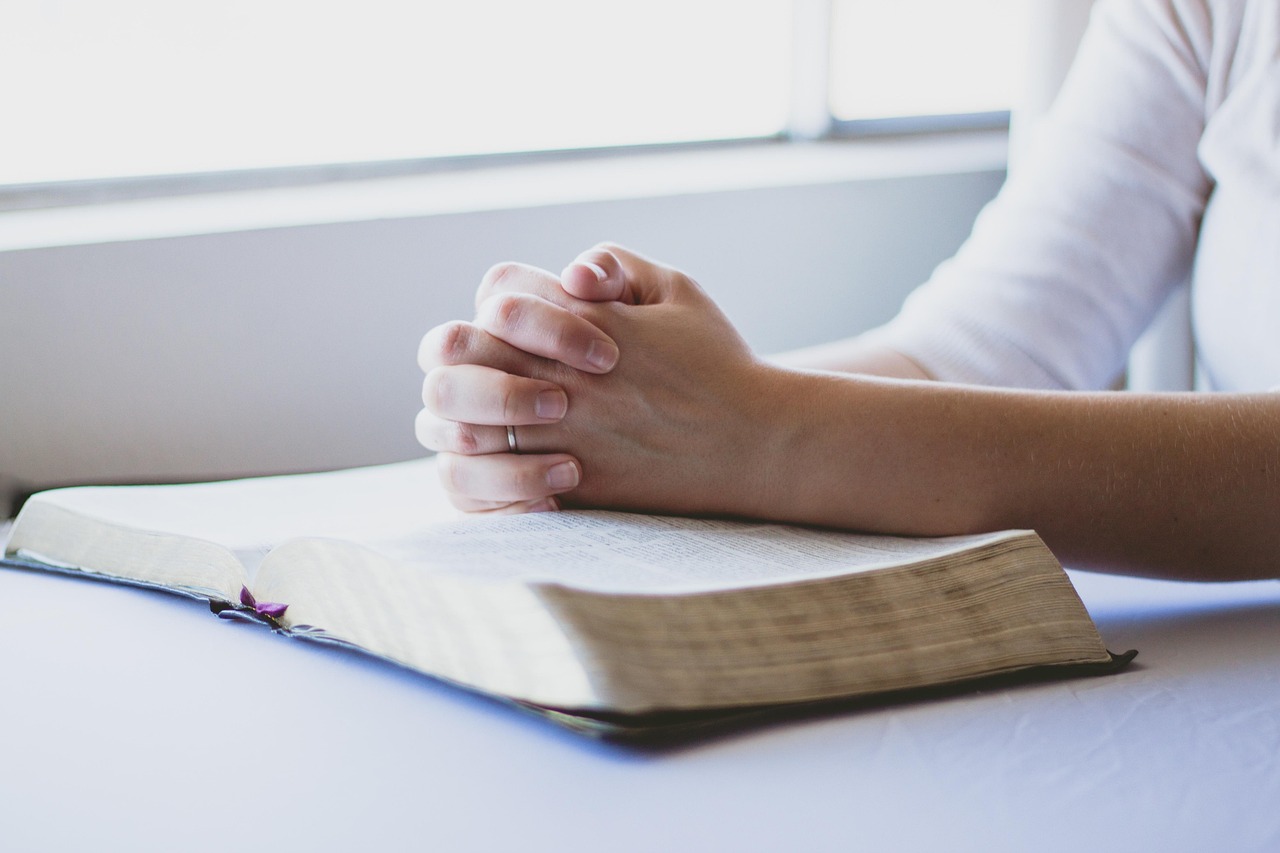


 Maria Riley is a passionate Catholic author and speaker who loves volunteering or playing board games when she’s not writing or mom-ing around with her four daughters. Her award-winning Catholic children’s chapter book series,
Maria Riley is a passionate Catholic author and speaker who loves volunteering or playing board games when she’s not writing or mom-ing around with her four daughters. Her award-winning Catholic children’s chapter book series, 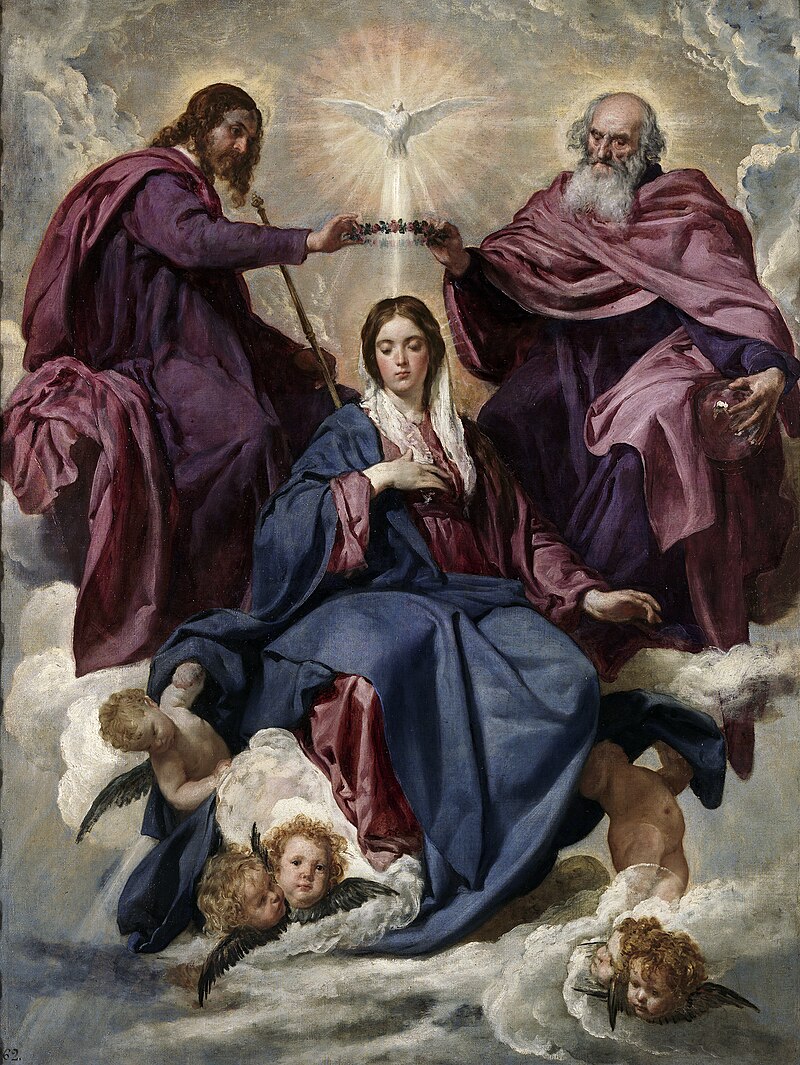
 Former NPS Park Ranger, Catholic educator, and Youth Minister, Melissa Lucca now spends her days evangelizing family and neighbors as a stay-at-home mom. She holds an MA in Theology from the Augustine Institute and pursues personal study in her spare time. Melissa loves Ignatian Spirituality, Mother Mary, and rock climbing. If you don’t hear her and her kiddo laughing at home, then they are probably out on an adventure!
Former NPS Park Ranger, Catholic educator, and Youth Minister, Melissa Lucca now spends her days evangelizing family and neighbors as a stay-at-home mom. She holds an MA in Theology from the Augustine Institute and pursues personal study in her spare time. Melissa loves Ignatian Spirituality, Mother Mary, and rock climbing. If you don’t hear her and her kiddo laughing at home, then they are probably out on an adventure!
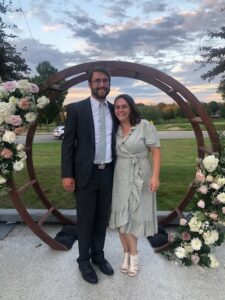 Heather Orlowski and her husband are busy parents of three little girls. The Catholic Church holds a special place in her heart and in her entire life. She attended Catholic schools from Kindergarten through college. She graduated from Aquinas College with a degree in Elementary/Special Education. Catholic Education is very important to her and she now teaches 1st and 2nd grades at St. Therese Catholic School. In her free time, she loves creating memories with her family and watching her little girls play soccer.
Heather Orlowski and her husband are busy parents of three little girls. The Catholic Church holds a special place in her heart and in her entire life. She attended Catholic schools from Kindergarten through college. She graduated from Aquinas College with a degree in Elementary/Special Education. Catholic Education is very important to her and she now teaches 1st and 2nd grades at St. Therese Catholic School. In her free time, she loves creating memories with her family and watching her little girls play soccer. 